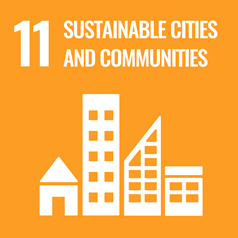University ranks 74 in the world for sustainability
The University of Newcastle’s commitment to sustainability has been placed in the spotlight today, with the university ranking 74 in the world in the QS 2024 Sustainability Rankings.

The results show an improvement from the rankings inaugural year in 2023, with the university improving 15 places in 2024, despite the number of universities included in the rankings doubling.
This achievement followed similar results earlier this year, with the University ranking in the top 30 for Global Impact in the 2023 Times Higher Education Rankings.
Vice-Chancellor, Professor Alex Zelinsky said the results were a wonderful recognition of the University’s global leadership in sustainability.
“We embed sustainability principles in our research, teaching and the facilities we provide. Sustainability is a core value of our University and our results in rankings like these demonstrated our contribution to solving the most pressing problems facing the world today,” Professor Zelinsky said.
“Whether we are leading research that creates a more sustainable future or educating the next generation of students in renewable practices, we are proud to be a global sustainability leader and will continue to strive for improvement.”
The rankings provide a benchmark for universities globally to evaluate their contributions toward solving these most pressing global challenges through research, teaching, engagement, and operations.
One of the University of Newcastle’s researchers whose research is improving sustainability on a global scale is Professor Ajayan Vinu.
Professor Vinu is a nanotechnologist investigating new ways to capture carbon dioxide and either store it or convert it into low-carbon fuels and chemicals, reducing our overall carbon emission.
In addition, his team has made a groundbreaking discovery of generating clean hydrogen from seawater using sunlight and unique nanomaterials.
“We are quite excited to be actively engaged in the development of nanotechnological solutions, aiming to provide fresh avenues of hope for addressing challenges like global warming, fostering a healthier environment, and promoting a sustainable future”, Professor Vinu said.
Sustainability is a core value of the University of Newcastle, which is committed to being carbon neutral by 2025.
You can read more about the University’s rankings here: newcastle.edu.au/our-uni/rankings
Related news
- From the Classroom to the Operating Room: Emily Mason’s Journey as an Indigenous Female Surgeon
- Partnering to prevent local extinction of threatened marsupial
- Launch of the School Students’ Statement on the Right to a Healthy Environment
- Funding boost to technology for lower emission steel
- Newcastle team on mission to improve childhood cancer outcomes
The University of Newcastle acknowledges the traditional custodians of the lands within our footprint areas: Awabakal, Darkinjung, Biripai, Worimi, Wonnarua, and Eora Nations. We also pay respect to the wisdom of our Elders past and present.

